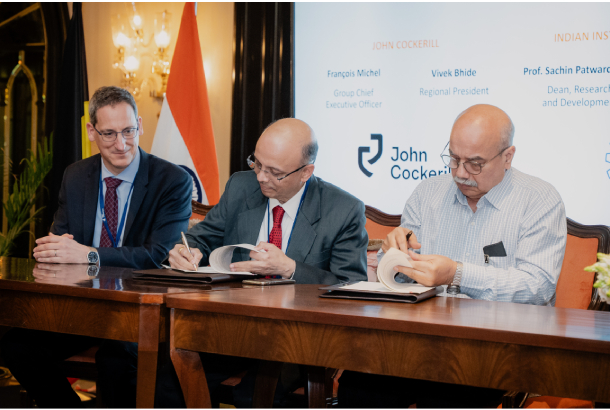IIT Bombay and Belgian industrial group John Cockerill came together to try and address steel’s lesser-discussed dirty little secret: its ginormous carbon footprint. Their new Memorandum of Understanding (MoU) is the opening act for a headlong dive into green hydrogen and decarbonisation combination that can bring meaningful change if it gives shafts steel’s dirty past.
The Carbon Footprint of Steel
Steel is the backbone of modern infrastructure, supporting cities, automobiles, and bridges. Its production, however, is one of the globe’s biggest single sources of carbon emissions due primarily to coal-fired blast furnaces.The IIT Bombay-John Cockerill collaboration is looking to turn traditional steelmaking methods on their head with advanced technology and alternative energy sources.
Green Hydrogen: A Game-Changer
The partnership will lay emphasis on multiple areas such as the innovation of energy-saving processes, application of green hydrogen for steelmaking, and cutting-edge technologies for eliminating industrial pollution. Green hydrogen made from renewable power is a clean fuel source alternative to fossil fuel and has the potential to render steelmaking an environmentally clean process. The partnership will bring much-needed impetus to research and innovation that will lead to the emergence of fresh technological advances within the sector.
John Cockerill’s Expertise Augurs with IIT Bombay’s Innovations
Green steel options have been led the way by industrial engineering pioneer John Cockerill. The company’s heavy engineering project experience and IIT Bombay’s research capability is a leap in leaps for sustainable manufacturing. The venture goes beyond steel, venturing into defence technology where the target is to create lightweight yet tough and eco-friendly materials for the defence sector.
Challenges to Green Steel
While it is much promised, the journey to green steel is not an easy one. Limitations of technology, technologies that are prohibitively expensive, and reluctance of the industry to adapt are some of the key hurdles. Nevertheless, with the target of net-zero emissions by 2070 set by India, each step counts from the sustainability perspective. The IIT Bombay-John Cockerill partnership can lead the way to a greener, cleaner steel industry, solidifying India’s vision for sustainability.
Read Also: IIT Kanpur to Develop AI-Powered Smart EV Charger and Hybrid Inverter

